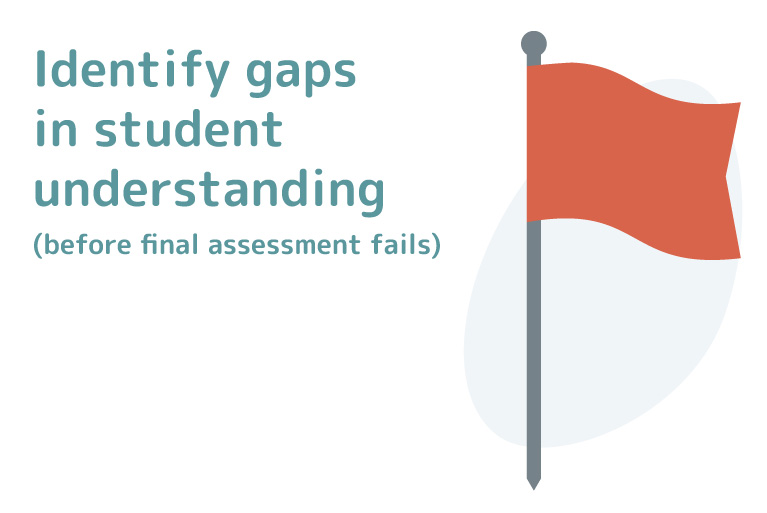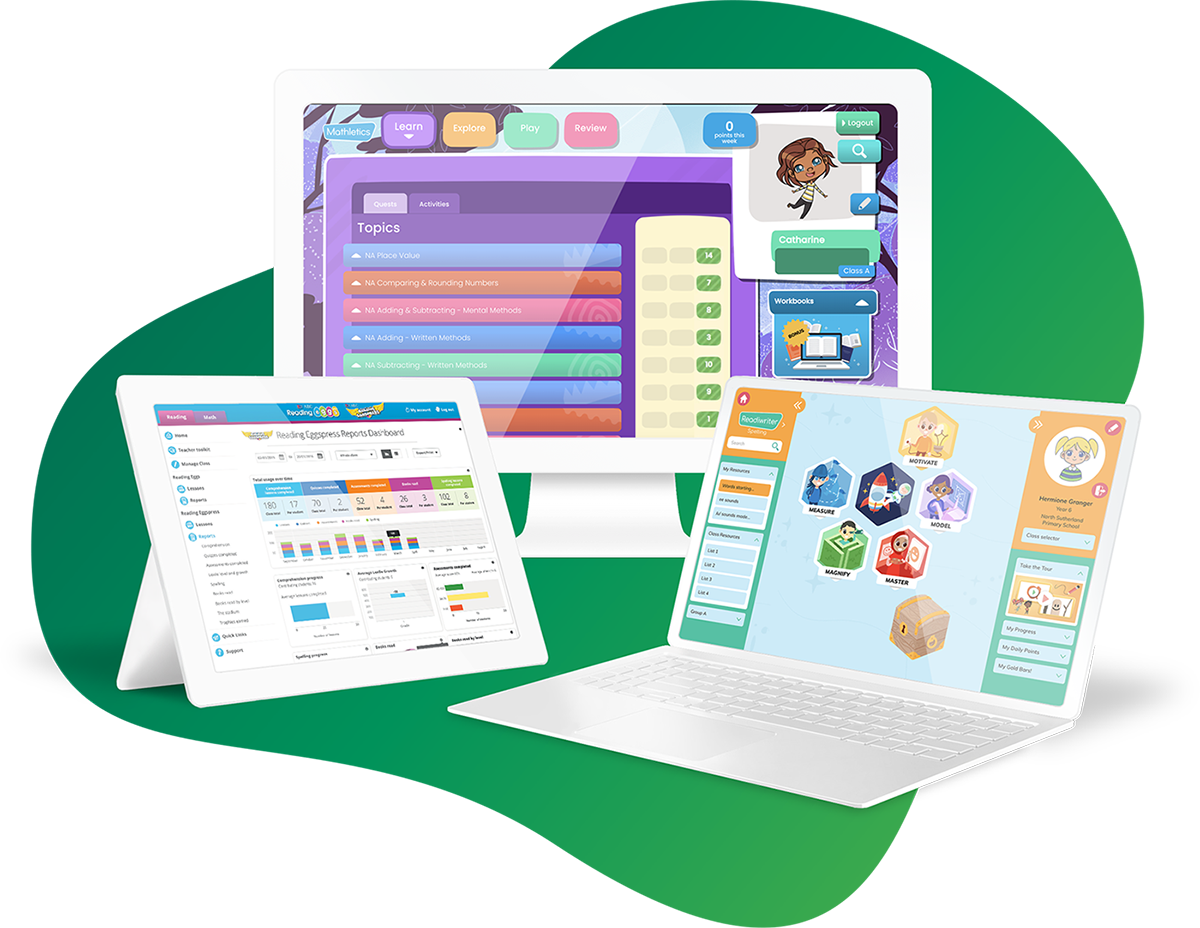
Put yourself in the shoes of one of your less able students during an ordinary lesson.
You’re desperately trying to make sense of what’s being said, but – honestly – you still don’t get what was introduced last week.
And now you’re dreading the moment when instruction ceases and you’re left to your own devices with a textbook or worksheet you can’t possibly comprehend.
What will you do?
Answer: nothing.
Even if you weren’t terrified of looking stupid, you know you need more help than you could possibly get right now.
Because the first signs of not-getting-it crept in ages ago. They just weren’t picked up on, by you or your teacher.
The challenges of formative assessment in mathematics
If we know what our students don’t know – before they fall radically behind – we can help. That’s why formative assessment is so important.
But effective formative assessment isn’t always easy to pull off in mathematics. Most of us have a hard time getting through the curriculum without creating extra marking for ourselves.
And even when we do take the time to set a formative quiz, worksheet, or activity, we find ourselves wondering just how reliable it is.
Did we cover everything?
Were they engaged enough to give it their best?
Did our struggling students go into shut-down mode when confronted with yet another ‘mathematics test’?
But there is an alternative. Edtech programs can help you deliver formative assessment that’s reliable, time-efficient, and more fun than frightening.
Here’s how:
No need to create assessments from scratch
If you choose a program that already comes loaded with learning material, there’s no need to dream up yet another page of questions and word problems for formative assessment. They’re all there for you.
For example, our own program, Mathletics, provides:
- 700+ problem-solving and reasoning activities to assess higher-order mathematical thinking
- 10 000 activities for practice and fluency
- a library of printable worksheets (if you want formative assessment without the screen time).
All you need to do is select an appropriate activity and assign it to your students (hidden bonus: zero photocopying required).
If you’re worried about how well a program’s activities will sync with your class, choose one that’s been specifically aligned with your curriculum.
All the learning contained in Mathseeds and Mathletics, for example, has been mapped to Australian Mathematics Curriculum outcomes for Years 1–10.
Engaging formative assessments with technology can ease test anxiety
No matter how many times you explain that it doesn’t go towards their final mark, pen and paper formative assessments won’t put students at ease.
And when anxiety sets in, results start to waver.
But a formative assessment delivered through an edtech program can generate more fun than fear. Here’s why:
- Most student-centred edtech programs are designed explicitly for student engagement. That means assessment takes place in fun, colourful and interactive virtual worlds.
- It doesn’t have to happen in class, and it doesn’t have to be done under timed conditions. Once you’ve assigned it online, students can complete the assessment at home.
- Students receive feedback instantly and automatically, without the anxious wait.
Technology can give you the precise student data you need to make a difference
Let’s say a student has bungled a word problem. Are they confused by the underlying concept, or struggling to make the leap from numerical problems to word ones? Where exactly do they need help?
To answer this question, formative assessment needs to be regular and comprehensive enough to pinpoint gaps in understanding. Only then can you select the right intervention strategy to get them back on track.
‘Regular and comprehensive’ assessments translate to a lot of prep and a lot of marking, but technology can lighten the load.
Because if you use an online mathematics program, you can get reliable formative insights at any time – with zero marking or assessment preparation.
Let’s use Mathletics and Mathseeds as an example. Once you’ve got students started with the program, it automatically assigns them curriculum-aligned work to complete at their own pace. They complete it (not necessarily because it’s learning, but because it’s fun).
Every activity they complete is then marked automatically, and the results are instantly visible in your teacher console. You can log in at any time and see precisely how each student is progressing, right down to the amount of times they’ve had to attempt a particular task before getting it right.
With this data, there’s no guesswork. You’re always the first to know when your students need help, and what they need help with. And that’s how you ensure that no one gets left behind.
Want to find out more?
Check out our online mathematics learning programs, Mathseeds and Mathletics. They’ll make formative assessment a daily and effective part of your practice.




